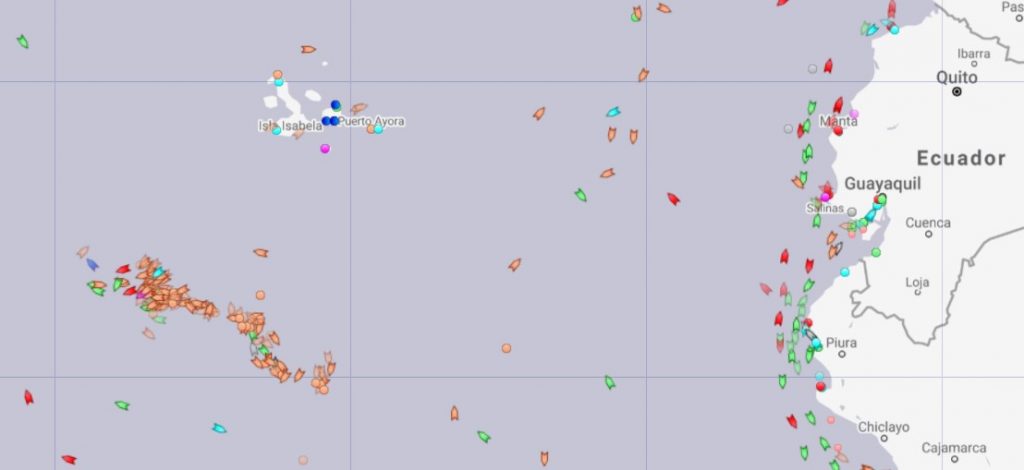Around 260 Chinese fishing vessels have been identified in the vicinity of the Galapagos Islands, an ecologically-sensitive protected zone in which fishing is prohibited from taking place. While the Ecuadorian authorities and environmental groups are on high alert, this threat could result in yet another instance of disastrous environmental results due to China’s maritime ambitions.
The eastern Pacific islands and surrounding seas are a UNESCO World Heritage site, protected for their abundant wildlife and biodiversity. Famously, the islands served as inspiration behind Charles Darwin’s theory of evolution in the 19th century. The surrounding seas are home to many endangered species and protected marine wildlife ecosystems, including the largest density of sharks in the world. Among these sharks are the endangered whale shark and the near-extinct hammerhead.
Chinese fishing vessels appear around this zone every year. Last year, 245 vessels were discovered operating in the same area. In 2017, a Chinese fishing vessel was captured in the Galapagos Marine Reserve carrying 300 tons of illegally caught marine life, including thousands of sharks. This time, the fleet was identified via satellite, squeezed between the boundaries of the protection zone and Ecuador’s territorial waters. This area also serves as a major migration route for marine species.
“We are on alert, [conducting] surveillance, patrolling to avoid an incident such as what happened in 2017,” Defense Minister Oswaldo Jarrin said.

Photo: Marine Traffic
In the Galapagos as well as other parts of the Pacific, Chinese fishing vessels, more properly understood as Chinese maritime militias, continuously conduct illegal fishing in areas under the exclusive jurisdiction of other states, violating both international law as well as environmental protected zones in these areas.
China has ratified the UN Convention on the Law of the Sea (UNCLOS), which designates the exclusive jurisdictions of coastal states. The complementing Convention on Biological Diversity aims to protect areas beyond national jurisdictions. But this has not put a stop to China’s maritime ambitions, neither in the high seas nor in other states’ territorial waters, as evidenced by their actions in the Galapagos.
In their own territorial waters and those surrounding their neighbors’, Chinese fishing vessels have largely depleted existing fisheries. This has been a result both of overfishing and of China’s dredging and artificial island building campaign to militarize the disputed South China Sea and assert their dominance in the region.
As a result, every year Chinese fishing vessels venture further out into other states’ jurisdictions to engage in illegal, unregulated, and unreported (IUU) fishing. In the process, they harass small fishing vessels and deplete neighboring states’ fisheries, hurting other country’s economies, tourism industries, and coastal fishermen’s livelihoods.
Ecuador is just one of many of China’s illegal fishing targets in present time, and we should be alarmed. The marine environment, around the Galapagos and beyond, is suffering irreversible damage.
Photo: Adrian Vasquez/AP
